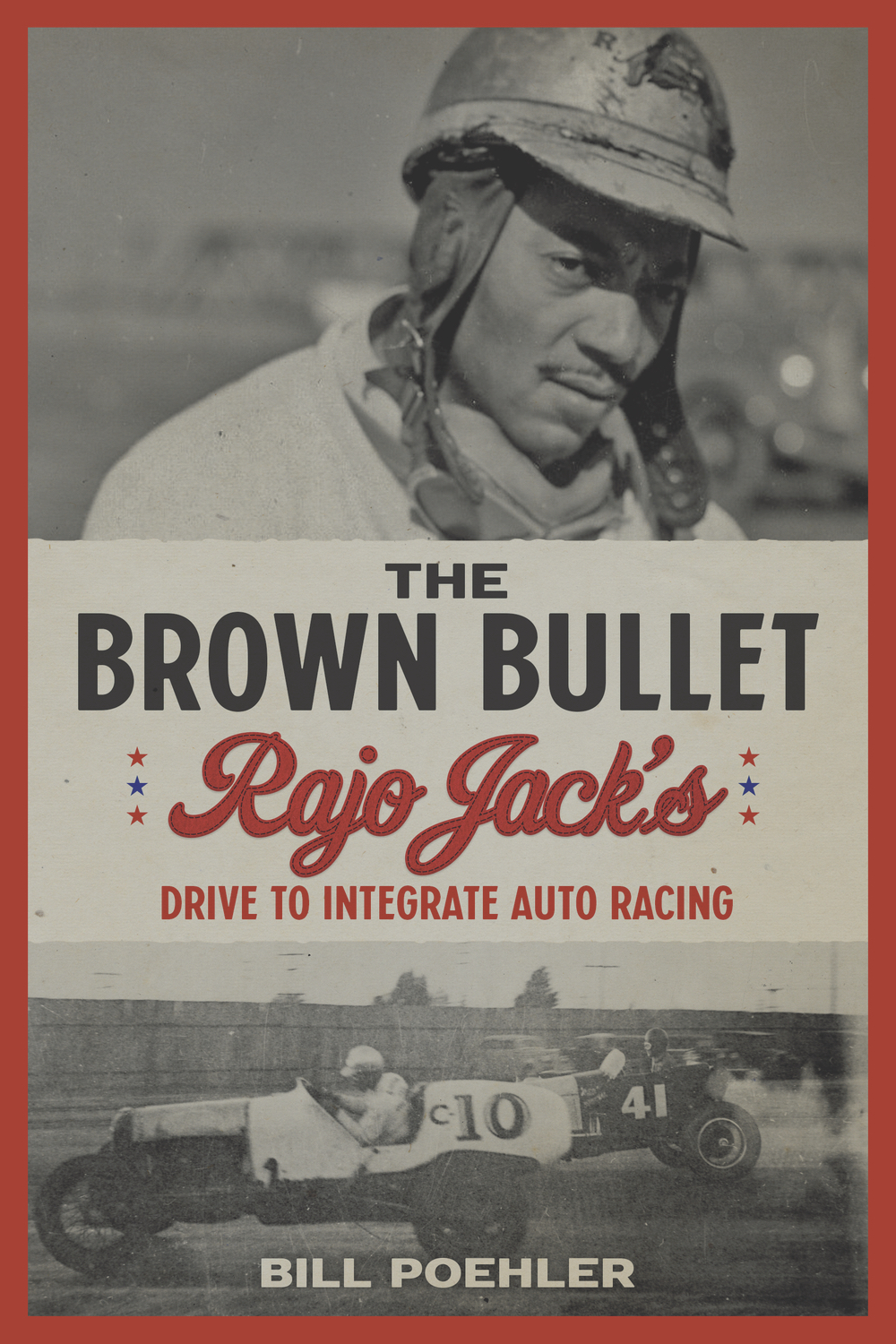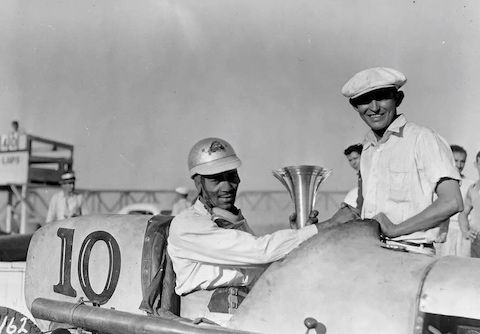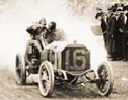Book Review
by Russell Jaslow
The Brown Bullet: Rajo Jack's Drive to Integrate Auto Racing

by Bill Poehler
Lawrence Hill Books
ISBN: 978-1-64160-229-7. List Price: $28.99.
  Auto racing has always had a diversity issue. Whether roadblocks, prejudice, or discrimination occurred or not, the sport has essentially remained lily-white throughout its existence. Auto racing has always had a diversity issue. Whether roadblocks, prejudice, or discrimination occurred or not, the sport has essentially remained lily-white throughout its existence.
Black drivers have been few and far between in the top echelons of motor sports. There's Joie Ray, the first black driver to earn a AAA driver's license, Wendall Scott, the first black driver to win a NASCAR race, Willy T. Ribbs, the first black driver to qualify for the Indy 500, and of course Lewis Hamilton, the six-time (and perhaps counting) Formula 1 World Driving champion.
Then there's the black driver who came before them all. The one who tried to integrate the Indianapolis 500 for years. The one who gained the respect and admiration of his peers and car owners and promoters. The one who put up with numerous lost opportunities because of the color of his skin. That driver was Rajo Jack.
Rajo Jack's story has never been told before in detail. Bill Poehler finally does that not just in detail of his entire life, but with care and respect in The Brown Bullet: Rajo Jack's Drive to Integrate Auto Racing.

Rajo Jack receiving a trophy at Southern Ascot Speedway.
He was quite the character. Rajo Jack wasn't even his given name. Nor the second or third name he used. His life and stories off the track are sometimes entertaining enough. But, it's the racing on the track which defines Rajo Jack, both as a driver and car owner.
Poehler describes in great detail Rajo Jack's racing career sandwiched around WWII, from his early, and not so successful, driving days to his winning years to his popularity which had west coast promoters paying him large appearance fees.
However, despite all his success, it was the blocked attempts of breaking into the top form of racing in those days -- the AAA -- by blatant discrimination which stands out the most. Even as an Indy 500 mechanic he had to endure the indignity of only being allowed in Gasoline Alley at night under the guise as a "janitor." And could only watch the race from the colored grandstand.
Poehler is a journalist by trade, and it shows in this book. His extensive research and descriptions of the individual races and seasons are done in a journalistic style. Sometimes, this makes the prose a little monotonous, but it provides a full accounting of Rajo Jack's life and racing.
Society has come a long way, but racing is still very much a white sport. Rajo Jack was one of those early black drivers that tried to, and in many ways did, change that. Finally, his full story is told in a book all racing fans need to read.
Copyright © 2020 by . All Rights Reserved.
| 


